
Ganesh Samarth is a batch of 2021 graduate of the Department of Electrical Engineering. In this piece, he reflects on the ups and downs of his college life, along with sharing valuable insights and experiences worth learning from.
How was your college experience?
Out of the four years, we lost one and a half years in COVID. At the beginning of our college journey, during the first year, the campus—even the temporary campus—was almost nonexistent when we arrived. There was nothing there at all—no roads, no lights—absolutely nothing. We found ourselves exclaiming, “Is this what the campus looks like?”. We just came there and the first semester was bad for me, my cpi was 7 points and I completely flunked all my courses. In physics I got a grade of 4, and 5 in CS. So it was pretty pathetic and I was like it’s done, that’s it! But thankfully, after that, I sort of pulled my socks up.
How were the sports facilities during your time in college, considering you were part of the second batch?
Coming to the sports facilities, since we were the second batch, we had very few sports facilities. We just had one TT table shared across multiple hostels. We had a playground which was filled with grass and it was difficult to play there. The volleyball and football grounds which are in the rear half now, were not there then. Even the separate building for the mess was not constructed then. Mess food was also not good back then.For sports, we had to go to the agricultural university nearby. But later on, thankfully things got better.
What are the skills that you have found valuable and would recommend students to learn them?
While I don’t believe there are any specific skills required to survive college, there is one skill I found immensely valuable: the ability to study effectively in a short period of time, such as the night before an exam. Mastering this skill can have long-lasting benefits. Often, you’ll find yourself in situations, both in college and later in the corporate world, where you need to perform under time constraints. Pulling all-nighters, participating in hackathons, and thriving under pressure can greatly contribute to your success.
In life, whether pursuing a master’s degree or working in a professional setting, time will always be limited. You’ll never have enough time to thoroughly go through every piece of information. Instead, you’ll need to develop the skill of quickly skimming through documents and summarizing key points. These abilities will serve you well throughout your career.
While it’s not advisable to intentionally leave things until the last minute, it is crucial to cultivate the mindset of thriving under pressure.
Personally, even though I was a studious individual, I also made time for other activities. I would often visit the canteen, like the Gowda canteen we had, to relax and enjoy delicious food. Although I felt like I was studying excessively, in reality, I was not utilizing my time effectively. Eventually, I would find myself starting the real work on the last night before a deadline.
Overall, the ability to excel under pressure, adapt to time constraints, and quickly process information are skills that proved valuable to me in college and beyond. I am grateful that I developed these skills, and I believe they can greatly support your academic and professional endeavors.
How did you prepare for your internships?
In my second year, I devised a plan for myself, setting goals for the following years which actually helped me. I was determined to pursue a master’s degree after completing my fourth year. Initially, I aimed to go abroad for an internship. However, many professors advised me to focus on building skills and consider other important endeavors. Despite their suggestions, I remained determined. I reached out to Prasanna sir and several professors at IITDH, expressing my desire to go abroad. They cautioned that it was too early, but I persisted. Eventually, I had the opportunity to study at Durham University in the UK for three months after the end of second year. To get that, I practically emailed like 500 professors. It was a fantastic experience, although I faced challenges, including visa issues and getting robbed in London. The trip kickstarted my enthusiasm and taught me valuable lessons about research, publishing papers, and designing research projects. While IITDH had a stronger emphasis on teaching rather than research, I witnessed a more systematic and research-oriented approach abroad. Upon returning, COVID-19 struck, and my third-year internship plans were affected. However, I leveraged LinkedIn to connect with professionals, which led me to secure internships at CRED, Amazon, and during my master’s program. Reaching out to people on LinkedIn made a significant difference in my job search compared to applying directly. I learned the importance of knowing whom to approach, and when to approach them, and developed a systematic approach during my third-year internship search. Initially, I planned to take it easy during the lockdown, but realizing its prolonged duration, I started exploring job opportunities on LinkedIn. Through this process, I identified a potential employer and reached out to the person, ultimately securing an interview.
How did you reach out to the recruiters?
In LinkedIn, two important factors to consider are:
- HRs and recruiters manage the company front, but LinkedIn wasn’t widely used at that time, making it difficult to secure interviews through them. Connecting directly with hiring managers is a more effective approach due to less competition.
- Instead of emailing HR, reaching out to hiring managers increases your chances of automatic consideration for interviews, bypassing HR. When I say Hiring managers they are from the team you are going to work in, you have to reach out to them.
This strategy plays a vital role in improving your chances. Taking the initiative to reach out can truly make a difference.
Additionally, securing an interview is harder than passing it, as illustrated by my experience of applying to 300 companies for internships, receiving interviews from only 7, and clearing 5. Reaching out to the right people for guidance is crucial.
Lastly, building a strong professional network is essential. Merely focusing on academics and technical skills won’t suffice. Actively networking through platforms like LinkedIn and email significantly increases your chances of success.
How did the college prepare you for the social and cultural diversity you encountered after graduation?
One valuable aspect of my college experience was learning how to live independently. While this skill is further developed during my master’s studies, the college provided me with a foundation. If I had remained at home, eating home-cooked meals and commuting, I don’t believe I would have been adequately prepared for the challenges of my master’s program. Living on my own during undergrad gave me firsthand experience of the difficulties that come with self-reliance. It also contributed to my personal growth and development. Additionally, college taught me important skills in time management and multitasking. With numerous courses, labs, and the need to adapt to different disciplines (e.g., from Electrical to CS engineering), I realized that it’s not just about the specific knowledge gained, but rather the ability to learn and adapt.
While it may feel that 99% of what I learned in my bachelor’s degree is irrelevant to me now, what truly matters is not just the content of what I learned, but rather the skills and approaches I developed in the process.
“It’s like learning how to learn”.
How to manage stuff, how to Juggle between stuff, how to study, that is what I learnt at IIT.
Do you have any insights to share?
I was heavily involved in pursuing multiple internships. During my third semester, I spent a month working at IIC in December, mainly to have it on my resume. However, I realized that this approach didn’t yield any significant accomplishments and may not have been the best idea. It taught me the valuable lesson that it’s better to specialize in one area rather than being a “Jack of all trades”. By focusing on one thing and becoming a master at it, you can excel and outperform others. This emphasizes the importance of “knowing your shit” and selecting a field where you want to develop expertise. Putting in the hard work to achieve mastery in that specific area is crucial.
With your current experience, how would you plan out your undergraduate years?
If you ask me now, with the experience I have, how I would have planned out my undergraduate studies, In my first semester, I would have made an effort to perform better. That was awful. I completed a master’s degree in computer science, and the first question they ask is, “What’s your C++ grade?” I would say 4. However, it struck me as a fun thing in a strange way. The second is unquestionably to participate in all inter-IIT competitions. I’m not sure how it is now, but when we went, it was actually rather enjoyable. Both the inter-IIT sports meet and tech meet are a lot of fun. I’m not sure if you’ve visited IIT Bombay. The campus at IIT Bombay is quite magnificent, and the food was fantastic.
Another observation I made was that many people in my batch were constantly preoccupied with their future. From the beginning of the second year, they were already focused on preparing for the third-year internships. Even before the completion of the third-year end semester, they were already anxious about placements. However, looking back, I realized that undergrad is probably the only time in life when you can enjoy a somewhat relaxed lifestyle. After my first semester, I was stressed too, but then I had an epiphany—it’s alright, it doesn’t have to matter that much. I started taking things easy, practically chilling right now.
During your undergrad, it’s essential not to overburden yourself with worries. Take your time, savor the experiences, and enjoy the journey. Of course, work hard and be dedicated, but avoid getting consumed by the notion that your entire life depends on what you achieve during these years. I belonged to the “finish this course” kind of batch, always busy, never really taking a break. However, towards the end, I decided it was time to chill, but then the unexpected happened—COVID struck. Despite the circumstances, I’ve come to realize that balance is key, and it’s crucial to find joy in every phase of life.
Could you share some of your memories or experiences close to your heart at IITDH?
One of my fondest memories from college occurred during my second year. In a course called Digital Systems, taught by Prof. Ruma Ghosh, students from the Electrical and Computer Science departments were given assignments involving the significant task of condensing information from a specific book. Being an eager learner, I started working on it early to complete it and have some leisure time. In my flat, which housed around 5-6 people, with the majority being computer science students, they approached me around 1 pm, asking if I had made any progress when the deadline was set for 4 pm. I responded, “I’ve already started, let’s work on it together.” Initially, we were a small group of 4-5 people, but within the next hour, our numbers swelled to 25 in a cramped 2x2 room. We shared 7 A4 sheets of assignment, with everyone copying and occasionally correcting mistakes. This collaborative and intense working session lasted for 3 hours, with intermittent moments of relaxation and enjoyment. Similar situations like this arose multiple times during my college years and remain some of the most cherished moments of my life.
The views presented above are the guest's own and are not in any manner representative of the views of Drishti or IIT Dharwad in general.

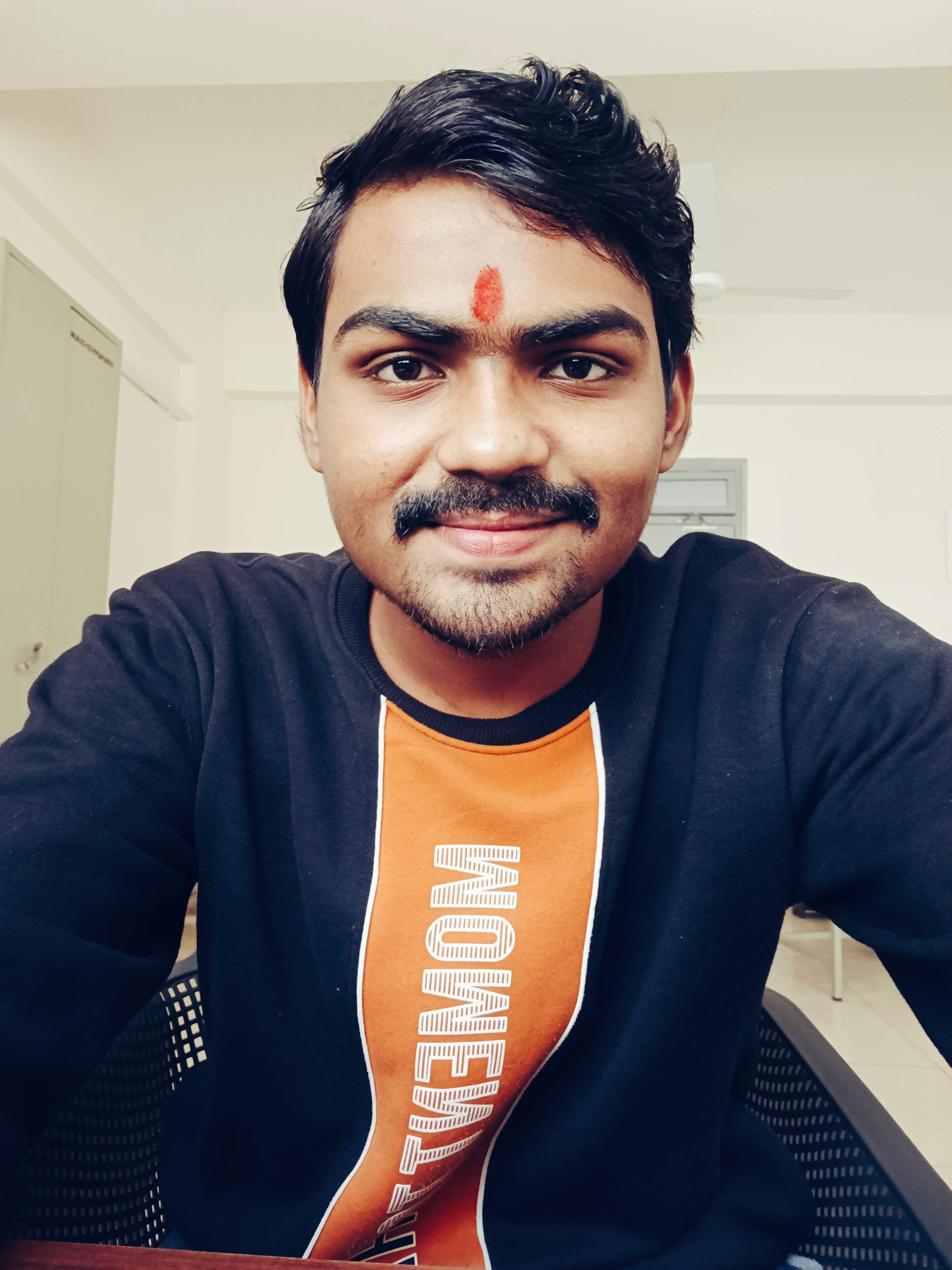

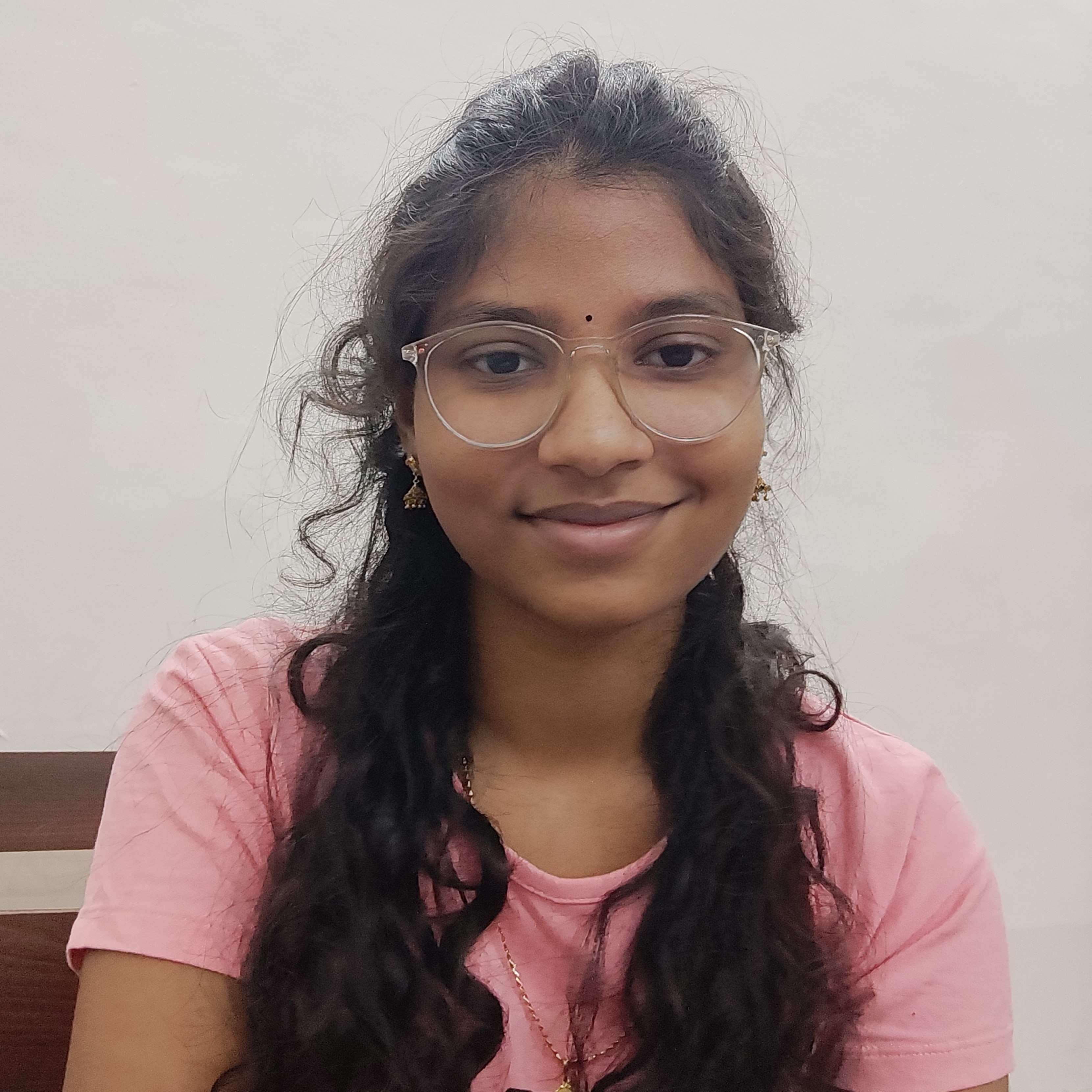

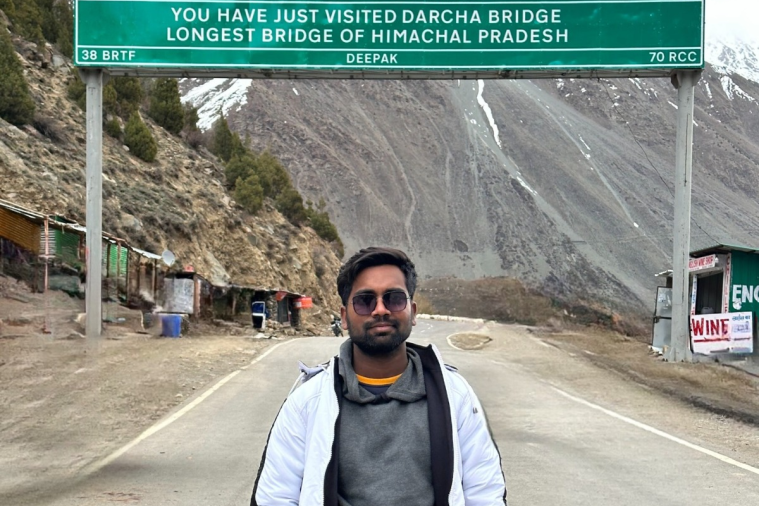
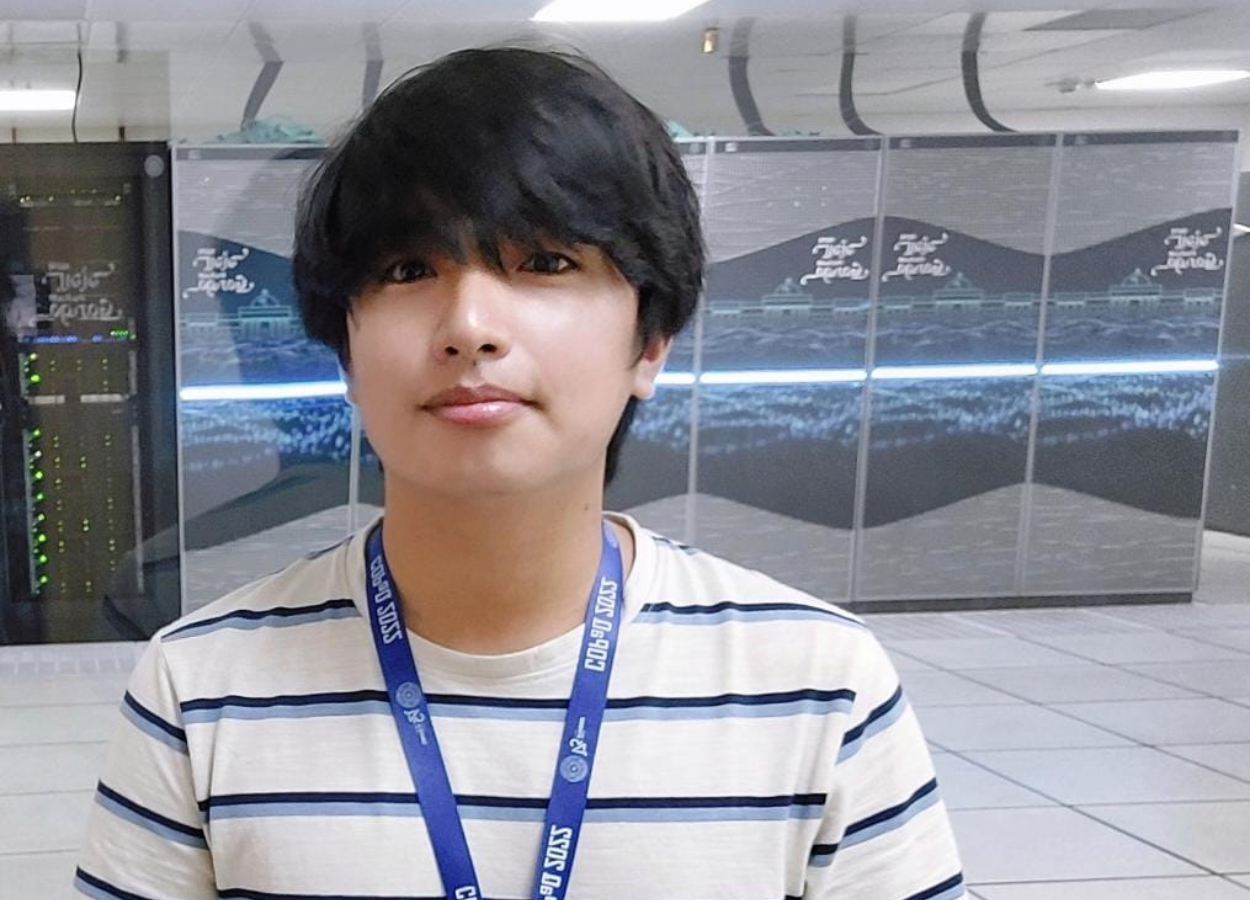
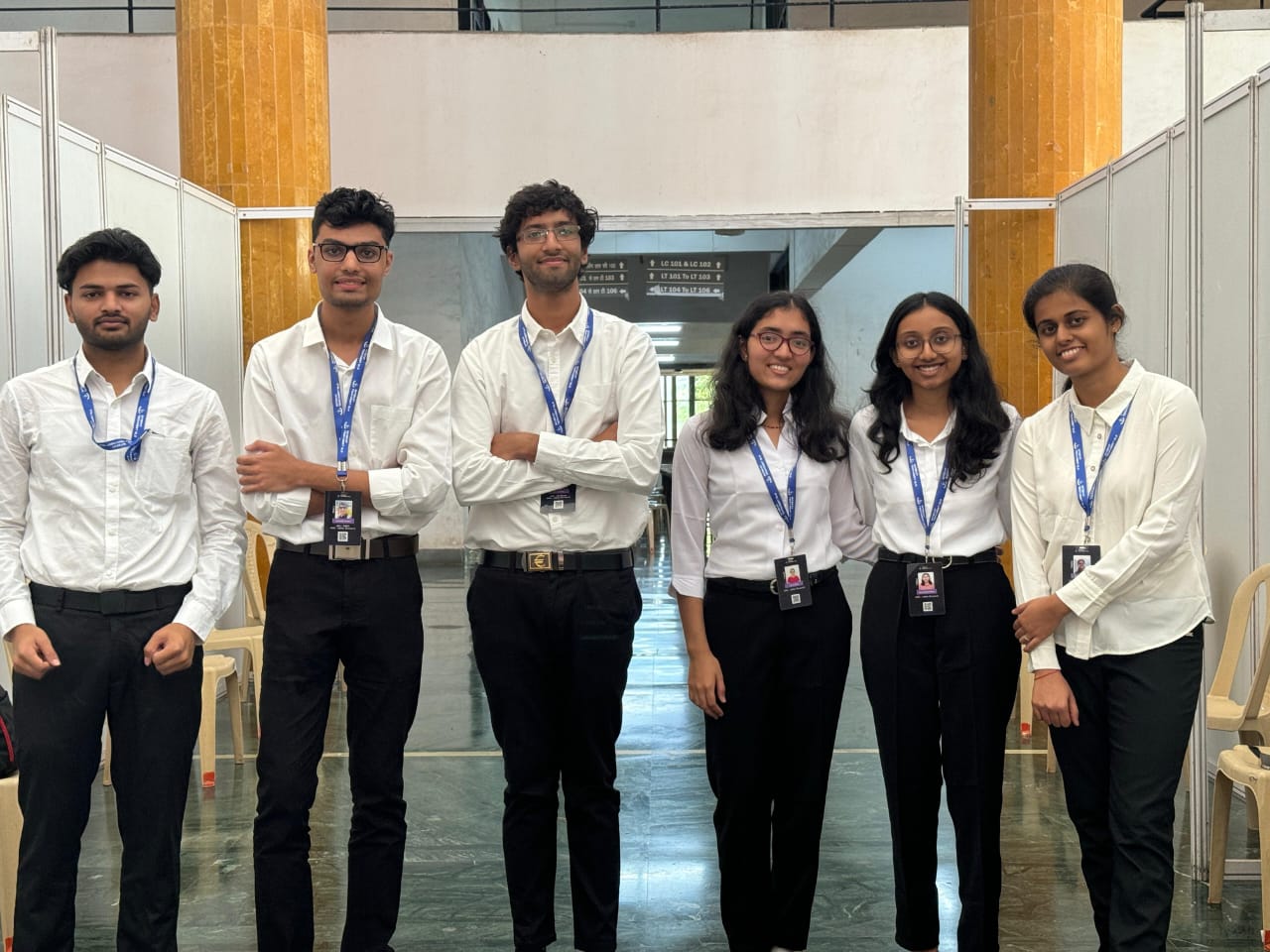
 Never miss a story from us, follow us on our handles!
Never miss a story from us, follow us on our handles!
Comments